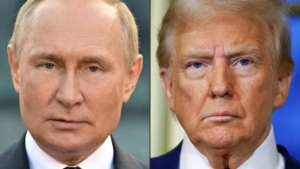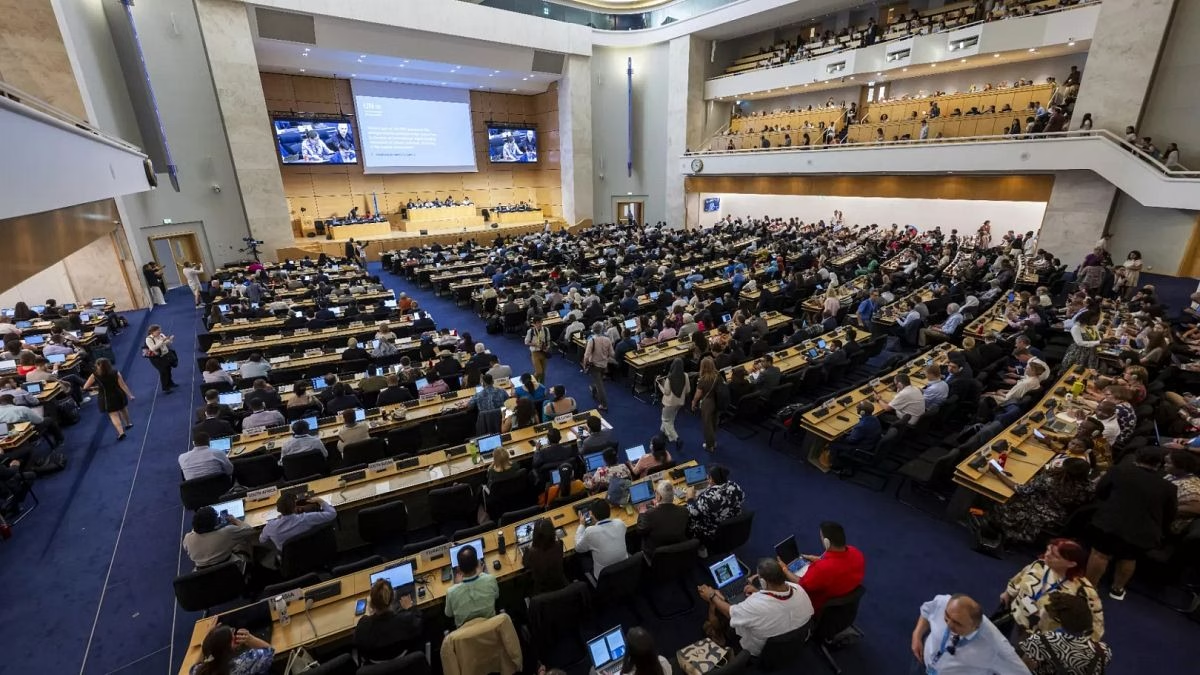By Euronews Green
Published on

ADVERTISEMENT
On Wednesday, negotiators working on a treaty for global plastic pollution discussed a new draft text that does not limit plastic production or address chemicals used in plastic products.
Talks stalled just a day before they were scheduled to end, with countries expressing disappointment due to their differing views on the draft.
The text may change significantly, and a new draft is expected Thursday, which is the last day of the negotiations.
‘Unbalanced’ or a ‘good enough’ starting point?
When they convened on Wednesday night, Colombia’s delegation said that the text was entirely unbalanced and lacked the ambition and global obligations needed to address plastic pollution. They said it wouldn’t be acceptable as the basis for negotiations.
The head of Panama’s delegation to the talks, Juan Carlos Monterrey Gómez, stood up and cheered. Many delegations agreed, including Mexico, Chile, Ghana, Canada, Norway, the United Kingdom,the European Union, and the group of small island developing states.
“The current text on the table is not acceptable for the EU,” European Commissioner for Environment, Water Resilience, and a Competitive Circular Economy, Jessika Roswall, said.
EU representative Magnus Heunicke said in a post on social media that the text “doesn’t meet the minimum needed to respond to the plastic challenge”.
“This is not acceptable for future generations,” said Erin Silsbe, representing Canada.
Oil- and gas-producing nations raised other concerns, with states like Saudi Arabia, Kuwait, Qatar saying that the draft doesn’t have the scope they want to set the parameters of the treaty or precise definitions.
The United States said that six articles crossed red lines, but didn’t elaborate.
India’s delegation considered the draft a “good enough starting point.”
What was included in the treaty draft?
The draft includes only one mention of plastic production in the preamble, affirming that the importance of sustainable production and consumption of plastics. There is no mention of chemicals.
The new provisions aim to reduce problematic plastic products that often enter the environment and are difficult to recycle. They aim to promote the redesign of plastic products for easy recycling and reuse. Parties to the treaty will also improve their waste management.
Luis Vayas Valdivieso, the chair of the negotiating committee, drafted the document based on nations’ views expressed during the negotiations. He told them that the goal was to move them closer to a legally-binding instrument, allowing them to shape, improve, add, or delete the wording as they see fit.
With little time left, he emphasized the need to build bridges rather than dig in over red lines.
David Azoulay, Head of the delegation for the Centre for International Environmental Law, believes the text undermines a three-year-long consultative process that included broad support for a treaty addressing the full lifecycle of plastics. He added that it gives in to petrostate and industry demands with weak, voluntary measures ensuring increased plastic production indefinitely, failing to safeguard human health, and endangering the environment and future generations.
“It will be very difficult to recover from this, and we encourage Member States to reject the text.”
What is blocking progress on the plastics treaty?
The talks have been stymied by disagreements over whether the treaty should impose caps on producing new plastic or focus on better design, recycling, and reuse. Around 100 countries want to limit production and address toxic chemicals.
Powerful oil and gas-producing nations and the plastics industry oppose production limits. They prefer a treaty with a focus on better waste management and reuse.



